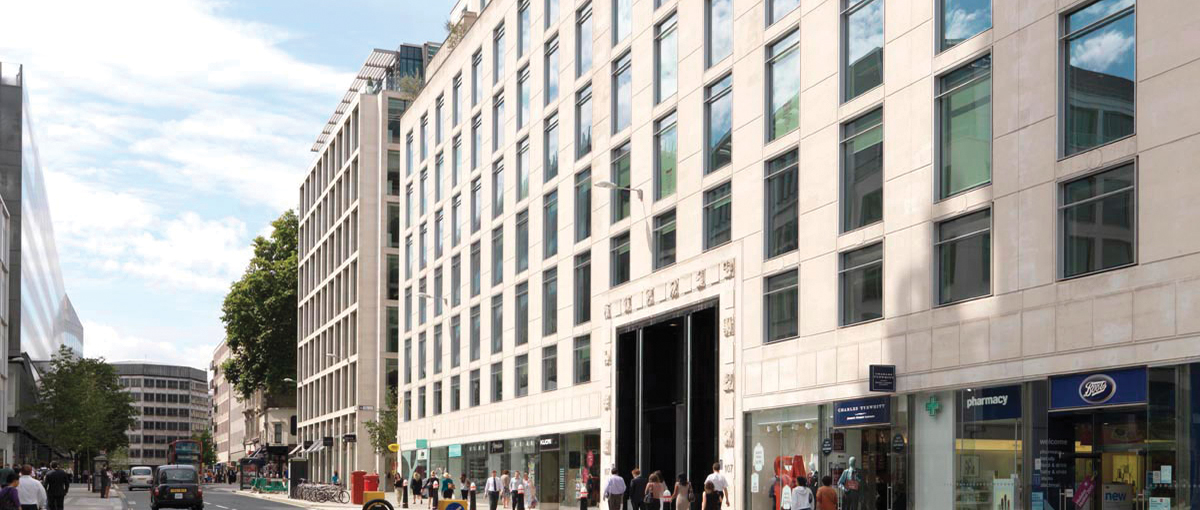In a sector seen as ripe for consolidation, even the most ambitious serviced office companies can end up being prey rather than predator. The team at BE Offices is adamant that as their business hunts for new capital, it will not get swallowed up.
The company confirmed this week that it has hired advisory firm Rothschild to help it weigh up various financing options including an equity raise, a joint venture partnership, the sale of a major equity stake and a bond issue.
BE Offices, which runs 20 serviced and coworking workspace locations nationwide, launched in 1994, since which time it has added other businesses to its initial offering. In 2017 it launched BESpoke to target large corporate occupiers seeking flexible space, as well as buying Manchester-based Headspace to access the media and fintech co-working market.
Any new funds will be earmarked for expansion, with the BESpoke division prioritised for growth. “We need more stock to offer to the market and there’s an element of capital investment required for this,” says Jonathan Weinbrenn, managing director of BESpoke, who launched the division after joining BE from The Instant Group, another co-working company.
Expanding market
BE Offices is not alone in its search for new capital. Announcing office company IWG’s half-year results this week, chief executive Mark Dixon highlighted the scramble for investment in the coworking sector.
“Our industry… continues to be increasingly recognised and mainstream, which means we are operating against a rapidly evolving backdrop,” Dixon says. “As the attractive characteristics of the flexible workspace market attracts more operators, there is evidence that some of these are becoming investment constrained, which may present IWG with opportunities.”
Other mid-sized coworking brands seeking expansion have typically been snapped up by bigger companies or private equity buyers. Blackstone bought The Office Group in a £500m deal in 2017, while last year a family office from southeast Asia picked up London Executive Offices for £475m. Others exploring financing options include Fora, the London-focused flexible offices firm owned by Brockton Capital. Fora is reportedly exploring a refinancing to fund an expansion of its portfolio.
These names are all competing for scale in an oversupplied market. The number of flexible workspaces in the UK – including serviced offices and co-working developments – stands at 5,972, according to a report from the Instant Group. This figure includes 1,423 in London alone.
Cal Lee, global head and founder of Workthere, Savills’ coworking venture, Scale, says the sector remains attractive for consolidation. “My view is that the coworking sector will slowly become more akin to the hotel sector, and follow a similar pattern. At one end you will have the independent and niche providers, whilst at the other end larger firms or private equity will own a selection of brands that target different areas of the market.”
However, BE Offices insists the plan is to avoid selling the business in its entirety, despite a report in The Times suggesting that its founders, David Saul and Simon Rusk, are considering offloading their two-thirds holding in the business as part of their latest search for investment.
“It is not our current intention, nor the purpose of this exercise, to make an outright sale,” a company spokesperson said.
Weinbrenn argues that BE Offices is among the few profitable players in a position to attract investment. “I think we are in a fortunate position as we are unique in our sector. There are very few who have been in the market as long as we have, with the same track record of profit. If we look at our competitors there are few who are successful and profitable, obviously IWG being one and an enormous one at that. But I don’t think there are a plethora of highly successful and profitable players in our market.”
In its most recent financial results, for the year ending 2017, the firm posted a pre-tax profit of £1.3m. It owns the freehold of five of its properties, which are valued at around £150m. It is also expected to generate £40m of revenue this year.
Currently, BE Offices owns nearly 1m sq ft of office space in London, the South East (Basingstoke, Milton Keynes and Reading), Belfast, Birmingham, Bristol and Manchester. It is also eyeing space in Southampton, Leeds, Cardiff and Cambridge.
Whether it succeeds in its mission remains to be seen, but judging from the fate of its rivals, an acquisition could well be on the cards.
BE Offices is hoping to secure more cash to offer clients a broader range of services further afield. “We see an opportunity to roll out more exciting products with interesting designs and incorporate wellness features,” says Weinbrenn. “We want to offer clients more concierge services and features you’d find in a private members club. We want to do that in locations that aren’t always so obvious. London is key but we want to look outside as well. We haven’t entered Europe as a business yet, and a few clients are talking to us about that.”
To send feedback, e-mail anna.ward@egi.co.uk or tweet @annaroxelana or @estatesgazette











